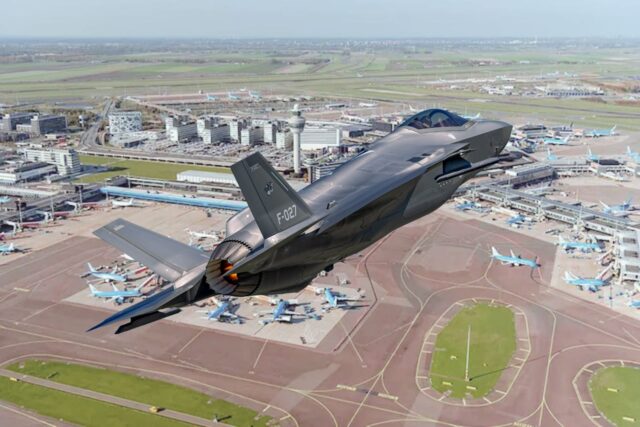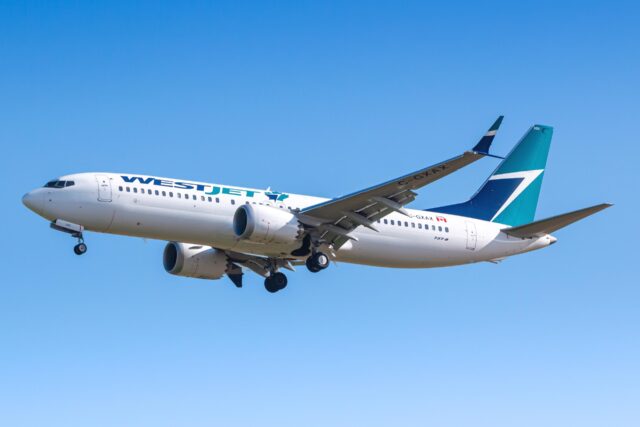Ex-airBaltic CEO Martin Gauss takes over Gulf Air

September 17, 2025

Martin Gauss has been appointed CEO of Gulf Air, effective 4 November. He succeeds Jeffrey Goh, who has been in the CEO position since 2022.
Gauss previously led the ambitious European airline airBaltic, evolving it into the world’s first all-Airbus A220 operator and growing the carrier significantly during his almost 14-year tenure. He left under a cloud on 7 April this year following a shareholder vote of no confidence.
His appointment to lead Gulf Air was announced by Kahlid Taqi, chairman of the Gulf Air Group, who highlighted Guass’ expertise in airline transformation, fleet modernisation and sustainable growth.
“I am confident in Martin’s ability to advance Gulf Air, enhance competitiveness, strengthen corporate culture, expand our global network and improve operational performance,” Taiq said, “further solidifying Gulf Air’s role as a proud representative of the Kingdom of Bahrain on the international stage.”
Gauss and Gulf Air: A good fit?
Bringing Martin Gauss into Gulf Air aligns well with Bahrain’s wider Vision 2030 aviation strategy.
“Our focus is to cement Bahrain as a specialised, regional hub for aviation and cargo operations,” Dr Shaikh Abdulla bin Ahmed Al Khalifa, Minister of Transportation and Telecommunications, explained to AGN at this year’s Paris Air Show. “This will require us to align our aviation growth with our tourism, trade, and logistics sectors to maximise economic synergies under our Vision 2030.”
Part of this vision involves a bold transformation of Gulf Air as it transitions to an A320neo and 787-based airline. Another batch of Boeing 787s were ordered in July for network expansion, part of which will see the airline return to New York this winter after decades.

The experience Gauss brings in both transitioning a fleet and expanding networks will serve him well at Gulf Air. His commitment to sustainability aligns well with Bahrain’s vision, and his ability to build a cohesive and confident workplace culture will be well-received in the company.
However, his leadership will be under scrutiny from all corners. His ousting from airBaltic came following heavy losses in 2024, arguably influenced by issues outside of his control, such as GTF engine groundings and airspace closures. Nevertheless, the board decided, some would say unfairly, to signal no confidence and ultimately expel him from the CEO role.
Gulf Air is something of a different beast, with widebody aircraft, long-haul routes and all the complexities that come with them. The proposition is different too, with a focus on boutique, high-quality, full-service operations, rather than airBaltic’s lean and agile approach.
Nevertheless, a new broom tends to sweep clean, and Gulf Air could see long-term benefits from being a bit more airBaltic in its approach.
Goodbye to Goh
Former Star Alliance CEO Jeffrey Goh has led the Gulf Air Group since 1 January 2023, giving him a tenure of less than three years when he leaves in November.
Gulf Air doesn’t have a track record for long-serving CEOs. Previous leader Captain Waleed Al Alawi was officially CEO for one year, although he’d been acting CEO for a couple of years before. Maher Salman Al Musallam, before that, was acting CEO from late 2012, but only officially CEO from May 2016 until he resigned in June 2017.

Taqi didn’t comment on the reasons for Goh’s departure, but noted that he had been pivotal in guiding the airline through the COVID-19 recovery period. A large part of his attention has been on cutting unprofitable routes, adding more attractive connections, and integrating the fleet to support expansion.
Gulf Air had been loss-making for many years, with no public records indicating it had made a profit at any time. However, the airline keeps its financials close to its chest, and as a state-owned airline, it is not obliged to publish figures.
Last year, it described its profits as being up by 53% as passengers increased 5.4%, indicating Goh’s changes were having a positive effect.
Goh described his time at Gulf Air as ‘a great honour,’ expressing his gratitude to employees and the board for the support he’d had in his role.
















